“Don’t hit at all if it is honourably possible to avoid hitting; but never hit soft”, - Theodore Roosevelt
A State of Complexities
At the time of India’s independence, the State of Jammu and Kashmir (J&K) was, by the very nature of its construct, was slated to pose certain historically inherited and politically motivated complexities. Those complexities had been further exacerbated by the fanatic motivations of the ruling class of the newly created Pakistan. That ruling class, the instigator of partition, had been obsessed with the idea that purely on account of it being a Muslim majority State, Kashmir had no option but to join Pakistan.
In 1947 upon British departure, just as it was the Maharaja’s monarchial objective, Sheikh Abdullah’s democratic, secular credentials too were aimed at gaining political independence for the State of J&K, with themselves at the helm - democratically elected, of course. Conversely, having sold Kashmir as an added Muslim destination to the perception of its people, Pakistan’s rulers, fundamentalists and violent by nature and now impatient with the Kashmir Maharaja’s procrastination, tried to annex the State through a brutal invasion. Helplessness against Pakistan’s aggression, the Maharaja was joined by the entire political class led by the Muslim Conference Chief ‘Sher-e-Kashmir’ Abdullah to exercise the choice ofo acceding to the Indian Union. In so doing, there had been certain understandings on autonomous administration of the State as part of the Union. Nevertheless, as an imperative for the State’s security against lurking expansionists like China, Russia, potentially even the Central Asian States and Afghanistan, and now Pakistan, it was considered expedient to handover the entire charter of the State’s defence, communications and exchequer for the Union to bear.
Breeding Intransigence
Over the following seven decades, successive Indian governments at the Centre had been intent on dealing with the State’s political, ethnic, terrestrial, territorial and religious complexities in an accommodative, consensual manner. The part of the J&K State in India’s actual possession had been administered according to the Kashmir polity’s self-drafted and popularly supported state constitution to exercise the embellishments of politically autonomous self-rule, while its fiscal, security and socio-economic progress had been sustained by the Central Government. In the subsequent years, many of the autonomous provisions from the State’s Constitution had been amended for the benefits of its people and with express initiative and concurrence of the State Legislature.
But what should have actually lead to final integration of the State into the Indian Union, in this instance led to the rise of a wheeler-dealer-leader class who used the Union’s resources to consolidate their position. Later, this class, in order to maintain their privileged stranglehold on power, began playing the double game of inventing and encouraging a titillating rhetoric of autonomy-secession on the one hand, while milking the Centre’s largesse for their individual benefits on the other, even if that had to be at the cost of the State’s progress as well as the cause of national integrity. Indeed, recovery from such a wretched situation had been long overdue.
A Landmark of National Integration
The recent, eagerly awaited and most acclaimed amendment of Articles 370 and 35A of our Constitution is arguably the most significant step taken by independent India. That after long dithering India has taken the right plunge, the regressive Articles have been amended, and that there are heavy consequential stakes involved in righting the seven decades of wrong, calls for the nation to girdle up to stand up to and tame the inevitable storm. Conversely, the occasion for serious appreciation of the situation and the excruciating challenges of governance of the State have sometimes tended to be side-lined among a distracted gentry by their frivolous discourse of shallow contents. There have also been some irritating triumphalism and trivialisation of what actually is a grave test of political acumen at the national level. Thus, even while the inevitable internal as well as external pressures spin intermittently to alarming levels, the Indian State’s efforts in straightening the narrative is often distracted by banal political point-scoring, local opportunists and occasional law-and-order set-backs.
Taking the right plunge therefore requires to be relentlessly pursued with national conviction and determination to take it to the right destination: national integrity.
Global-Local Perceptions to be Wary Of
The world view today repudiates secessionist movements, particularly if the host State is a power of some standing – China, Spain, Turkey, super-power allies, for example – in which case even the suppression of human rights is overlooked. Such concessions, however, are seldom made to the modestly placed nations where incidents of mass revolt is unlikely to find succour from adverse international reaction, condemnation, sanctions etc. India, on her part, is no stranger to forceful ‘suggestions’ made by global powers in the past to give up on Kashmir, though she has been able to ward off such pressures on account of her political ideals, reckonable military prowess and Russia’s past support.
A major factor in creation of Pakistan was the Western Powers’ need to have a submissive ally in this part of Asia. Therefore their preference in favour of the ‘baby brat’ against the ‘dangerous’ force of the Indians (who brought the British Empire down!) has always been palpable. This bias is seen right from the UN Resolution on the State of J&K of 1949, through the numerous instances of overlook of Pakistan’s flouting of international conventions since then, and right till the recently emanating condescending statements from the Western quarters on Kashmir. Meanwhile, Pakistan has further widened its constituency by claiming to be the inheritors of Islam. India’s case is therefore always destined to attract less international favour, if at all it does.
Among contrasting reports emanating from restricted access areas, negative propaganda catches more attention. Thus there is palpable disconcert among the global opinion makers about what is referred to as the ‘human rights situation in Kashmir’. It is natural that such opinions flow-out into local people’s perceptions too. This of course is no case to remove the restriction in the Kashmir Valley only to allow the militants to emerge from their holes and begin killing, imposing radical diktats and sabotaging peace and progress. But at the same time, remaining in defensive-denial mode rarely works in assuaging universal concerns. Some transparency of the ground situation, with due consideration for peace and stability, would have to be brought about.
Clouds of pretentious disquiet over India amending its own, democratically bestowed Constitution to administer her own affairs have already begun forming in the neighbourhood. Far-fetched insinuations - like the amendment’s ‘dangerous consequences on the peace and stability of all of India, Pakistan, the region, and the world’, possibility of ‘India annexing Sri Lanka and Bhutan’, ‘Nepal being turned into a Hindu state again’ etc. – are in circulation. With their religious preachers and majority of intelligentsia in the lead, this disquiet among the Muslim communities all across South Asia is particularly strong.
In Pakistan, there is the building-up call for ‘Kashmiri intifada’, repowering of the various terrorist factions with the Hijbul Mujahedeen at the fore, vigourising ‘jehad to destroy Hindustan’ and such acts of destabilising the hated ‘Hindu’ India. With instigation of all Muslims in mind, the Pakistan Government has even gone to the extent of ‘warning’ the international community over an ‘impending Muslim genocide’, besides, of course, purported outbreak of a ‘nuclear war’, devastating effects of which would ‘devastate all part of the world’. Intense machinations are underway to organise paid for ‘mass’ demonstrations in Washington and London. Unfortunately, many disoriented Indians too have joined up to stoke that farcical vigour.
The Indian State therefore, has to: One, make sure that the entire Valley stays generally safe and stable; two, remove the extra restrictions in the Valley - sooner rather than later; and three, be prepared to stand up to global pressures of both the political and military kinds.
The Next Objective
Time now is to look ahead and adjudge the looming eventualities with focus on considering all, even remotely possible, criticalities and set-backs, and accordingly gear-up to astutely manage these.
Pseudo-nationalist aspirations, howsoever banal, die hard. While most are dismissed as profanity, some, depending upon the degree of ethnic and religious interests fester for decades, even centuries. India may not be any exception. Besides, the situation in the Valley has the additional factor of being vitiated by fanatic obsessions of an immediate neighbour. Even that may not be a bother as long as the socio-economic lot of all Indians keep improving, internal frictions are managed below a threshold and the nation is powerful enough to deter adversarial intents. However, taken in totality the Valley radicals’ indoctrination and their vast sympathy base, Pakistan’s poisonous meddling in the Valley, China’s predatory interests on Ladakh, the nation’s sensitive internal security situation, and somewhat limited military prowess, there is enough to cause concerns among the Indian policy makers as well as the citizens over the looming developments in the newly created Union Territories of Jammu and Kashmir, and Ladakh.
The objectives for the Indian State in the coming months and years would therefore be identified as follows:-
- Management of Civil Protestations;
- Elimination of terrorists and their support cells, including the separatist-terrorist financing;
- Re-orientation of the severely self-alienated educated class and discrediting the poisoned ideology of Muslim-Pakistan.
A. Dangerous Portents of Civil Protestations
Notably, unending spread of regular protestations of the common man poses the greatest danger to the health of nationhood. In the Kashmir Valley, beneficiaries of separatist notions and their handymen, profiteers of militancy-economy and an antagonistically brainwashed educated class would not be in rest. The Pakistan State, smacking its lips over the past seven decades in anticipation of exploiting the riches of Kashmir would not let them rest. Therefore, after a clandestine reorganisation period of some month, build-up of civilian mass protests should be expected. As restrictions are gradually withdrawn, such protestations alongside brazen defiance of the State could be expected to gather momentum. By past experience of separatist dreams, civil protestations in the Valley are liable to level–off after some months and subside thereafter, sporadic terror incidents occurring now and then. Subsequently, sporadic instances of murder-arson by anti-nationals, action-reaction from security forces, rumours-false accusations in social media, and ‘condemnation’ from the ubiquitous ‘liberal conscience keepers of humanity’ could be expected – and prepare for.
Indeed, the Indian State has been commendably focused on bringing normalcy to the Valley, leaving no measure out of its reckoning while playing down the challenging situation – rightly so. The first and foremost objective at the present juncture therefore would be to prevent the gathering of any civilian street movement. This usually shapes up with coalescence of brainwashed groups of tens building up to hundreds and thousands to march through the streets with women and children in the van – after inviting a delighted press of course – and shouting, sloganeering, dramatising and provoking fence-sitters as well as the law enforcement personnel. There are every chances of some among the provocateurs to turn violent; the rest of the sequence of rumouring, breast-beating, fake news etc. is all too well known.
The imperative in the Kashmir Valley therefore is to prevent the protests and demonstrations from gradually upgrading into widespread civil disobedience. The key is to forestall gatherings of the ‘tens’ in the first place, certainly not hundreds. As educational, religious and political activities get going, this task would become increasingly sensitive. That would call for the State’s deft handling of the dynamics at all the three strata’s – rabble rousing politicals, anti-national mentors of the professional class, and the gullible youth.
Extraordinary situations call for extra ordinary measures in national interests. There should therefore be no hesitation in saturating the Valley, an integral part of the country of willingly or unwillingly alienated population, with own policing forces – and maybe even part-time recruitment of volunteer constabularies. Police forces are well versed in handling mass protest situations provided the numbers of lathi-wielding mob controllers, male and female, duly backed-up with surveillance measures and riot control units, are more than adequately deployed to cover the entire spread of settlements rather than being selectively posted. Large scale use of miniature unmanned aerial vehicles and ready response to gathering trouble spots, alongside the usual pursuit of cognitive and organisational penetration down to the ground level would be highly effective in denying space and opportunity to the separatist’ machinations. Similarly, relentless pursuit of the separatists’, rabble-rousers’ and opportunist state functionaries’ financial transactions would be necessary to burst the farce of the so called ‘azadi’.
Needless to state, on all accounts the overarching measure would have to be good governance and brisk delivery of public good.
B. Elimination of Militancy and Violence
The outcome of the Pakistan State’s anti-India vigour is in its submitting to a fanatic Islamist dream. This dream begins with charging up the Muslim ‘Ummah’ who are expected to be gullible enough to be misled by religious incitement and to seep them with the notion of ‘re-establishing the rule of Islam’ through jihadi violence. Considering the fanatic Islamist’s ‘grievances’ the over their perceived ‘Muslim ‘prosecution – in terms of preventing them from controlling by force all those who differ, Muslims and non-Muslims, according to their medieval diktats - and aided by massive financial contributions to the perceived Muslim-exclusive cause, militancy and violence in the Kashmir Valley, and even elsewhere, may be expected to go up and down for some years to come. Proximity of Pakistan and the in-roads her agents have made into the State of J&K will ensure that. Conversely, the resolve to triumph over that situation must come from the fact that even if religion instigated nationalist aspirations die hard, most however remain just that - no more than a titillating notion finding host in diminishing numbers of diseased minds.
A nation of one-sixth of humanity and a reckonable economical and military power need not be defensive, reticent in preserving its national integrity, whatever it takes. There need be no hesitation is according higher priority to the State’s security against anti-national devastation – narrower interpretations of political correctness, international opinion, human rights etc. must come only after that. The Government must continue to allow the security forces to operate within their legally sanctified freedom of action and uphold their commitment to the good of the nation.
For the coming months and years, the nation has to be fully prepared to deal with violent situations in the Valley. The imperatives in this context are:-
- Relentless prosecution of the Army’s ‘All-out’, ‘No Quarter to Terror’ Operations;
- Greater impetus to Army’s civic action or Sadvavna initiatives, with gradual involvement of local administrative machinery;
- Thrust on continuous upgrade of intelligence coverage;
- Mobile network is the most effective tool in the hands of anti-nationals and their Pakistani sponsors. Tedious no doubt, but it is technically practical to fire-wall all communication channels, specifically the mobile and land-line numbers, which are not duly certified by the subscribers. That will break the linkages to an extent that subversion would become a frustrating undertaking. This will also aid intelligence mapping.
- Comprehensive and continuous real-time surveillance across the entire spread of inhabitations to forestall militants from imposing their diktats on students, traders, farmers and professionals. Quick reaction to apprehend or chase away even some of the messengers of such diktats would have salutary effect;
- Prompt application of criminal laws of the land to dis-incentivise anti-national and sedition activities; and,
- Firm resolve to carry on for a long haul irrespective of occasional set-backs.
A historical fact to appreciate is that terror-fed insurgencies, particularly those sustained by neighbouring enemies, require huge sacrifices over long periods to defeat. Indeed, India herself has been making such sacrifices practically since the independence – that must not be let go in vain. Another historical fact is that violence-terror have, by themselves, never succeeded in securing the insurgents’ goals.i
C. Re-orientation of the Alienated
In the immediate future, cleansing the alienation among the people of the Valley could be a task that is destined only to partial fruition. It would therefore be a notable achievement if the intensity of poisoned notions among the educated class, and under their influence the rebellious fervour among the young people are made to taper off and finally overcome by the time the generation of intransigents grows old. Some of the measures to undertake in this regards are:-
- Taking advantage of the Security Forces’ domination drive across the entire spread of the Valley to reactivate the state-functions and permeate good governance down to the grass-roots level,;
- Firm law enforcement and restitution of local judicial system. These might require cleansing of the separatists among the state-functionaries and their wider base of sympathisers who are ensconced deep into the system;
- Regulation of educational system and media to neutralise anti-national propaganda through logical interaction and clarifications over rumours;
- In doing all that, to attract the common citizen’s faith in democratic-secular-peaceful societal and religious traditions.
Notably, expectations and grievances never go away, these are only replaced. Simply put, it is a universal fact that pleasing attendance to real, implanted and perceived alienation with the State is never enough to win the ‘hearts and minds’ of the people-at-large. Hearts and minds are better won over when it becomes convenient and profitable, and peaceful and safe for them to be won over into the mainstream.
Taking Cognisance of the Worst
The global as well as internal environment understands that the purpose of amending Article 370 is to put an end to seven decades of cognitive alienation and economic graft perpetrated by a partisan power block in Kashmir. Indeed, the Indian State stands committed to implement good governance in contrast to the pre-370 dispensation in order to lay the foundation of winning the people’s confidence on our nationhood. But delivery of good governance and people-friendly measures down to the grass-roots level is possible only when safety and protection of the administrative machinery is ensured, and that necessitates a robust upscale of the security coverage.
In contrast, the hard fact of life is that spread of effective security coverage cannot altogether prevent occasional confrontation. Moreover, in a worst case scenario, it is possible that there might occur a surge of mass rebellion which might necessitate exercise of robust and hard control measures. In such situation, some sparks are likely to fly and that could trigger heightened propaganda from the West-favourite Pakistan, and more significantly an ever aggressive and powerful China. All these could lead to the pressure of ‘international disconcert’. The Indian State must be ready to stand up to such situations on its own strength and resolve, just as many nations, indeed India too, has negotiated through. Needless to state, national strength and resolve is respected, even deferred to.
The Destiny
Strategically situated at one of the world’s most contentious regions, true integration of the entire State of J&K is an imperative for India’s long-term security and sovereign dispensation. Therefore, finding compromise with the current situation wherein that State is vivisected under control of three ideologically divergent nations - two of these possessed by compelling expansionist instincts against the third – would be a constant cause of trouble for India’s stability and sovereignty. Having taken the leap and controlled the situation so far, the only course is to press on with purpose and national resolve to stand up to and triumph over any of the conceivably ominous possibilities.
Within 10 weeks of the constitutional amendments, separatists and militants have become active. Societal activities in the Valley are open or shut, mostly the latter, according to their calls which is passed on by words of mouth and posters, stone pelting has re-emerged and terrorist killings have begun. At the international level, pressure to establish normalcy is building up. Obviously, the time has come to scale up the levels of security coverage, and gear up the governance under that coverage. Indeed, India has waded through such quagmires before.
The commitment is humungous and no mean a task to accomplish. But to reiterate, a nation of one-sixth of humanity and a rising power in its own right need not be shy in preserving its national integrity – whatever it might take.
Endnotes
- Audrey Cronin, in her seminal study on 450 cases over the world titled, ‘How Terrorism Ends: Understanding the Decline and ‘of Terrorist Campaigns’, finds that in 87.1 percent instances, terrorism completely failed to achieve the goals, in 8.4 percent cases it managed to trigger a few secondary concessions, and only 4.4 percent cases of terror-violence succeeded in securing the demands. Notably, in the last case, violence had been backed up by social work and public good to somewhat assuage the people’s innate but unstated disgust with the terror methods.
(The paper is the author’s individual scholastic articulation. The author certifies that the article/paper is original in content, unpublished and it has not been submitted for publication/web upload elsewhere, and that the facts and figures quoted are duly referenced, as needed, and are believed to be correct). (The paper does not necessarily represent the organisational stance... More >>
Image Source: https://akm-img-a-in.tosshub.com/indiatoday/images/story/201911/new_maps_uts_ladkah_jammu_kash-770x433.jpeg?ctY5KNjEVvJJiNhQVNo7X7fQ5m5h73ey

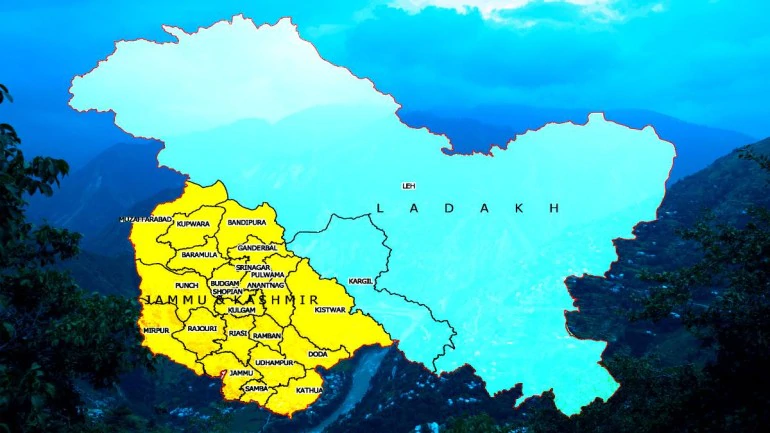
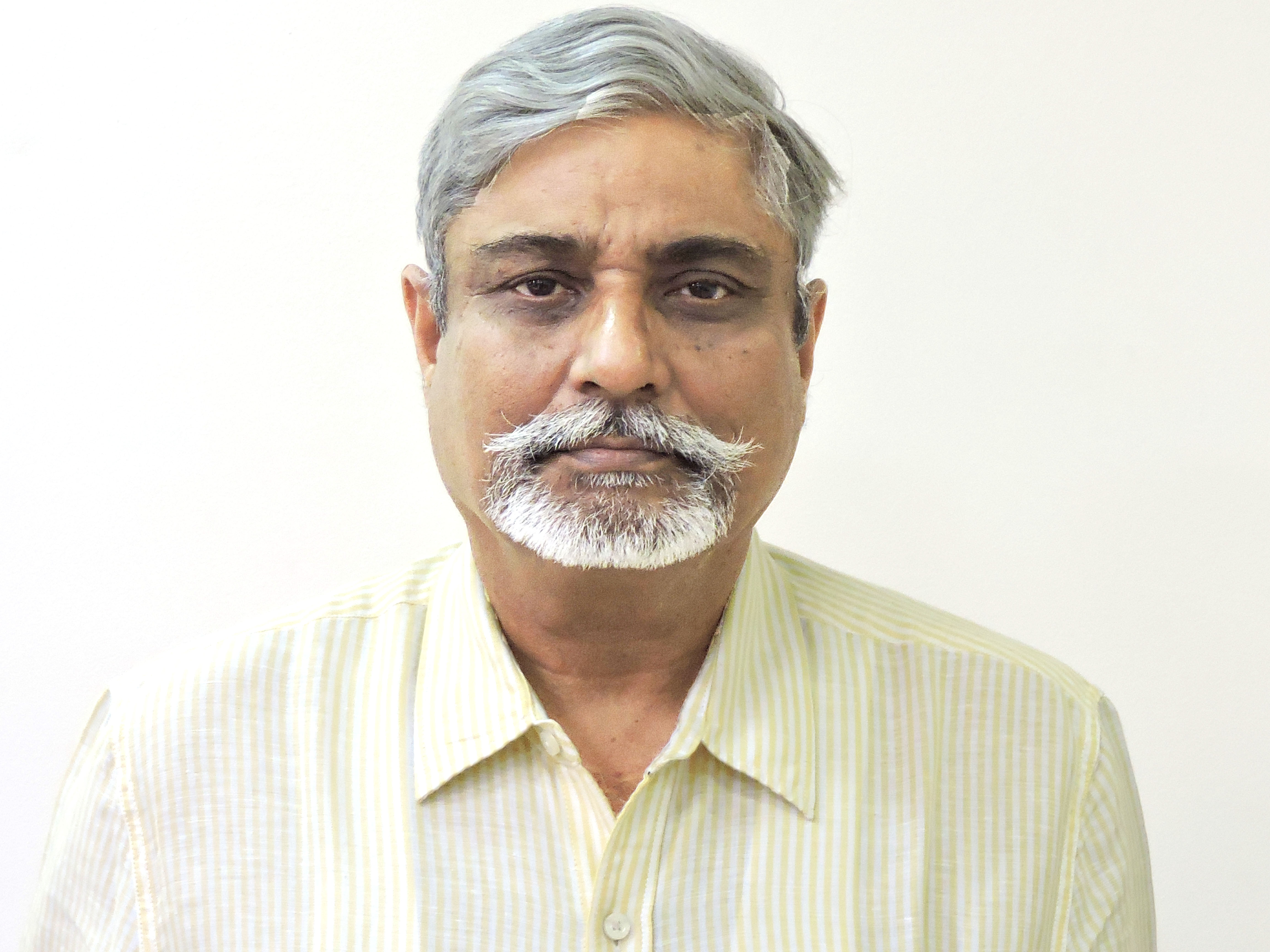

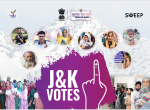

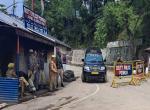
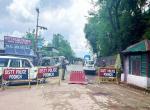

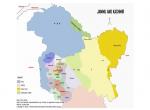

Post new comment